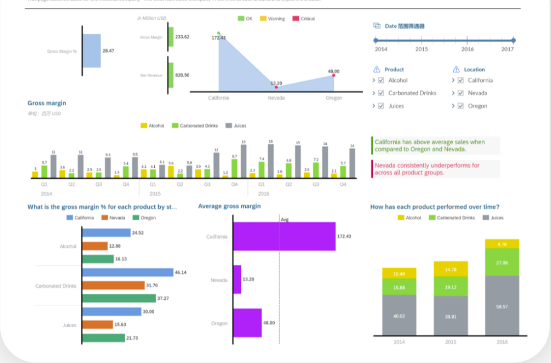What is a government scheduling software
Government Scheduling Software is a solution tailored to the unique needs of government organizations. It empowers government agencies to efficiently manage appointments, meetings, and resource scheduling, enhancing productivity and citizen satisfaction.
Government Scheduling Software Features
How to use Government Scheduling Software
- Calendar Setup and Customization
- Configure and customize calendars according to departmental needs in the 'Calendar Setup' module.
- Set working hours, holidays, and special event dates.
- Event Creation and Management
- Schedule government events, meetings, and appointments in the 'Event Management' section.
- Include event details such as time, location, participants, and agenda.
- Resource Allocation and Booking
- Manage and book resources like meeting rooms, vehicles, and equipment using the 'Resource Booking' feature.
- Ensure efficient allocation and avoid scheduling conflicts.
- Task Scheduling and Assignment
- Assign and schedule tasks to staff members in the 'Task Scheduler'.
- Set deadlines and reminders for task completion.
- Public Meeting and Event Scheduling
- Organize public government events and meetings.
- Provide scheduling details to the public through integrated platforms or public calendars.
- Staff Availability and Shift Planning
- Manage staff availability and shift schedules in the 'Staff Management' module.
- Coordinate shifts to ensure adequate coverage and balanced workloads.
- Notifications and Reminders
- Set up automated notifications and reminders for upcoming events and tasks.
- Ensure participants and staff are informed and prepared.
- Integration with Other Government Systems
- Integrate scheduling software with other government systems like email, communication tools, and case management systems.
- Ensure seamless data synchronization and workflow integration.
- Mobile Access and Remote Scheduling
- Provide mobile access to the scheduling system for on-the-go schedule management.
- Allow remote scheduling and updates for flexibility and convenience.
- Reporting and Analytics
- Generate reports on resource utilization, staff workload, and event outcomes.
- Analyze scheduling data for insights into efficiency and areas for improvement.
Government Scheduling Software is Designed For:
Related Government Software
What is Next?
- Get help building your app: Request a demo and we'll install this application to your trial Kohezion account.






Frequently Asked Questions
Government Scheduling Software is a solution tailored to the unique needs of government organizations. It empowers government agencies to efficiently manage appointments, meetings, and resource scheduling, enhancing productivity and citizen satisfaction.
- Calendar Setup and Customization
- Configure and customize calendars according to departmental needs in the 'Calendar Setup' module.
- Set working hours, holidays, and special event dates.
- Event Creation and Management
- Schedule government events, meetings, and appointments in the 'Event Management' section.
- Include event details such as time, location, participants, and agenda.
- Resource Allocation and Booking
- Manage and book resources like meeting rooms, vehicles, and equipment using the 'Resource Booking' feature.
- Ensure efficient allocation and avoid scheduling conflicts.
- Task Scheduling and Assignment
- Assign and schedule tasks to staff members in the 'Task Scheduler'.
- Set deadlines and reminders for task completion.
- Public Meeting and Event Scheduling
- Organize public government events and meetings.
- Provide scheduling details to the public through integrated platforms or public calendars.
- Staff Availability and Shift Planning
- Manage staff availability and shift schedules in the 'Staff Management' module.
- Coordinate shifts to ensure adequate coverage and balanced workloads.
- Notifications and Reminders
- Set up automated notifications and reminders for upcoming events and tasks.
- Ensure participants and staff are informed and prepared.
- Integration with Other Government Systems
- Integrate scheduling software with other government systems like email, communication tools, and case management systems.
- Ensure seamless data synchronization and workflow integration.
- Mobile Access and Remote Scheduling
- Provide mobile access to the scheduling system for on-the-go schedule management.
- Allow remote scheduling and updates for flexibility and convenience.
- Reporting and Analytics
- Generate reports on resource utilization, staff workload, and event outcomes.
- Analyze scheduling data for insights into efficiency and areas for improvement.

